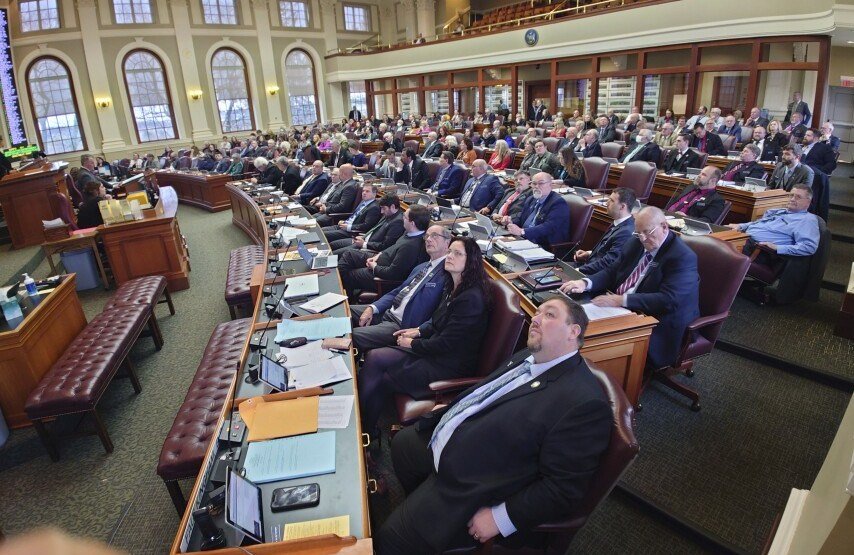The Portland Press Herald has analyzed the voting records of the state legislators in the last session and found that some lawmakers missed as many as one in five votes, while others had perfect attendance. The report also revealed the reasons behind the absences and the impact they had on the legislative process.
Voting records by chamber
The report showed that the voting records varied widely by chamber, with the House having more absentees than the Senate. Out of the 151 House members, 19 missed more than 10% of the votes, and four missed more than 20%. The highest absentee rate was 23.5%, belonging to Rep. Jeffrey Evangelos, an independent from Friendship. He said he had to miss some votes due to health issues and family obligations.
On the other hand, out of the 35 Senate members, only one missed more than 10% of the votes, and none missed more than 20%. The highest absentee rate was 11.4%, belonging to Sen. David Miramant, a Democrat from Camden. He said he had to miss some votes due to a medical emergency and a family funeral.
The report also found that 37 House members and 18 Senate members had perfect attendance, meaning they did not miss a single vote in the session.
Voting records by party
The report also showed that the voting records varied by party, with the Democrats having more absentees than the Republicans. Out of the 88 Democrats in the House, 15 missed more than 10% of the votes, and three missed more than 20%. Out of the 56 Republicans in the House, four missed more than 10% of the votes, and one missed more than 20%. The independents had the highest absentee rate, with two out of seven missing more than 20% of the votes.
Out of the 21 Democrats in the Senate, one missed more than 10% of the votes, and none missed more than 20%. Out of the 14 Republicans in the Senate, none missed more than 10% of the votes, and none missed more than 20%.
The report also found that 22 Democrats and 15 Republicans in the House had perfect attendance, while nine Democrats and nine Republicans in the Senate had perfect attendance.
Reasons and consequences of absences
The report revealed that most lawmakers who missed votes had legitimate reasons, such as health problems, family emergencies, work conflicts, or personal matters. Some lawmakers also said they had to miss some votes due to technical issues with remote voting, which was allowed for some sessions due to the COVID-19 pandemic.
However, some lawmakers also admitted that they skipped some votes intentionally, either because they did not want to take a position on a controversial issue, or because they wanted to protest against a certain bill or procedure. For example, Rep. Heidi Sampson, a Republican from Alfred who missed 12.8% of the votes, said she boycotted some votes because she disagreed with how some bills were handled by the Democratic majority.
The report also showed that some absences had significant consequences on the outcome of some bills, especially those that required a two-thirds majority to pass. For instance, a bill that would have allowed ranked-choice voting in presidential primaries and general elections failed by one vote in the House after four lawmakers were absent. Another bill that would have authorized $100 million in bonds for transportation projects failed by two votes in the Senate after one lawmaker was absent.
See the voting percentage for each member
The report also provided a table that showed the voting percentage for each member of the House and Senate, along with their party affiliation and district number. The table can be accessed here.

